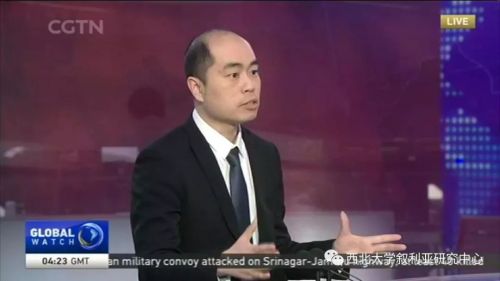2019年2月19日,中心研究员王晋于GlobalTimes发表中东时事评论文章,全文如下:
The Warsaw Summit organized by the US in the Polish capital was meant to highlight the "Iranian threat" in the Middle East and bring together the different allies to counter the influence of Iran in the region.
Many of Washington's partners were not one with US' description of Iran. Russia had rejected the invitation to the summit, while Britain, France and Germany all downplayed their presence by sending low-level diplomats. Even the host state, Poland, stressed that the summit should focus on Middle East, rather than Iran.
However, although Poland tried to downplay its role, Iran still saw red at Warsaw. The business connections between Poland and Iran are limited, while the historical and cultural ties are strong. In the WWII, Iran hosted more than 100,000 Polish refugees fled from Nazi and many Polish refugees were buried in Iran. After the news that Poland would host the summit was released in late December last year, the Polish ambassador in Iran was summoned and the "Polish Film Festival", scheduled for 2019, was suspended by Tehran.
Poland has hopes of closer ties with US to resist the geopolitical pressure by Russia from the east. In 2018, Polish President Andrzej Duda asked Trump for a permanent US base during a White House meeting, offering to name it "Fort Trump," and Trump responded that the request was under consideration. Poland does not want to annoy US over Iran. Meanwhile, Warsaw maintains that it should play a bigger role in world politics, especially in Europe. Poland believes that those "old European states", including France, Germany and Britain, don't represent all European Union members. Although Warsaw still believes that the Joint Comprehensive Plan of Action (JCPOA), which was signed between Iran, US, France, Russia, Britain, EU and China in 2016, should remain, it complains that other EU members' attitudes on the Iran issue should be respected and considered by France, Germany and Britain.
US should be well aware that European states won't support Washington's claim of the "Iran threat." However, the real purpose for President Trump and Secretary of State Pompeo might be to create the opinion circumstances. The Munich Security Conference has also just wrapped up.
Although EU states have kept their commitments on the JCPOA, more and more Iranians are complaining of their disappointment over Europe buckling under US pressure. There is a widespread sense inside Iran that European states could do nothing to save the JCPOA and that Europeans are unable to deliver any meaningful benefits to Tehran. Given the close ties between EU and the US, many Iranians believe that Germany, France and Britain would sooner or later join forces with the White House and turn hostile toward Iran.
Another rift has opened between Poland and Iran after the summit. In 2018, Poland had alleged that Iranian agents were active in Europe. The year 2019 marks the 40th anniversary of the Islamic Revolution in Iran, and the organization of an "anti-Iran summit" in Poland made the rift between Tehran and Warsaw very apparent.
Although the US might have been successful in widening the rift between Iran and European states through the Warsaw summit, Washington should realize that the only reliable solution for the "Iran problem" could be achieved only by dialogue.

